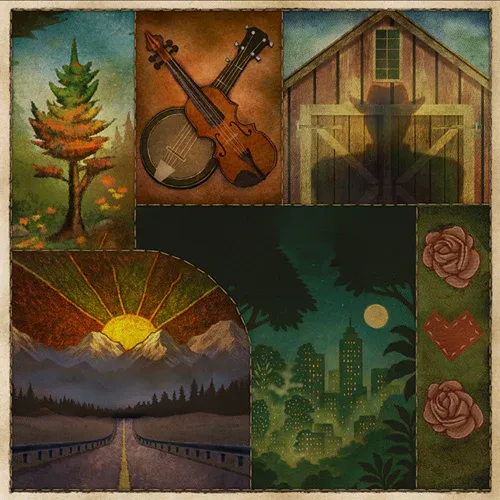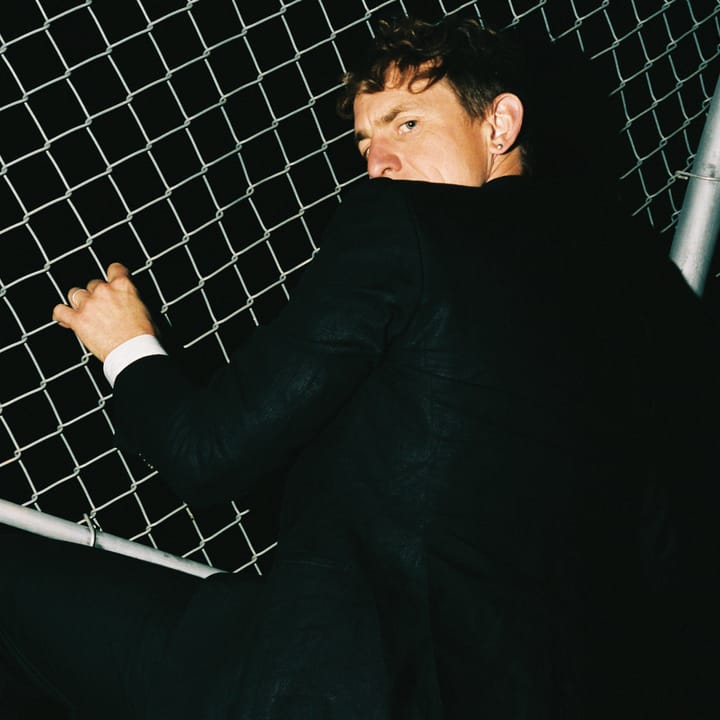I can't help but think that Neal Casal is one of those guys who spent most of his youth pretty much to himself, holed up in his bedroom in the lush green environs of rural west New Jersey (far removed from the industrial wasteland a short drive east on I-80), endlessly working (and reworking) out the songs that would eventually make up this gem of a debut album.
Thanks to a publishing deal Casal landed four years ago, he ahd the luxury of bypassing the mire of a day job to focus on his songwriting. He spent the time wisely, crafting a set of songs that mesh the plaintive country strains of a pedal steel with washes of Hammond organ to give the songs a Jimmy Miller-era Stones sensibility.
And although the themes tread the heavily-traveled territory of broken romantic liasons, Casal manages to avoid the pitfalls of lyrical triteness. His songs capture the melancholic despair that engulfs you as you realize your relationship is hoplessly crumbling before your eyes ("One Last Kiss"); the tension-filled nostalgia that hits you when you run across that old girlfriend who did you wrong in a major way ("Cincinnati Motel"); or the simple resignation that you just need to get the hell away from wherever you happen to be at the time ("Detroit Or Buffalo", an obscure Barbara Keith song Casal happened across in a Greenwich Village thrift shop -- cost him a buck).
He's also blessed with the ability to intimately translate that intangible heart-on-your-sleeve passion to the listener, a component of the listening experience that's hard to fully explain -- but I can equate it to the same kind of vibe I got after listening to last year's debut from Pete Droge. Also like Droge, Casal shares an affinity for augmenting the traditional guitar-bass-drums lineup with flourishes of organ and piano.
Bandmate John Ginty's keyboard work, both on record and in a recent live setting, plays a principal role in the mix. Just check out the Hammond-drenched refrains of the first single,"Day In The Sun", or the rolling Wurlitzer swells of "These Days With You". The same goes for the pedal steel work of Fooch Fischetti; check out the deft touches of "Feel No Pain". In fact, it's the interplay of these two throughout the album that provides the musical framework for Casal's songs. Aided by bassist Bob Glaub (CSNY, Jackson Browne) and Don Heffington (Lone Justice, Jayhawks studio drummer), and producer Jim Scott ("recordist" of Petty's Wildflowers), Casal couldn't be more impeccable with his connections (or maybe it was just luck).
It's doubtful that Zoo Records will drop the promotional bucks on this release that American did with Droge and the Jayhawks, and he won't enjoy the instant media fawning exhibited over recent debuts by ex-Tupeloers Wilco and Son Volt. But don't let that stop you from taking a chance on this promising new songwriter.
Read next

ALBUM REVIEW: Rose's Pawn Shop Take Stock of Twenty Years of Music on ‘American Seams’
Even from the opening fiddle bars, American Seams, the fifth studio album from Rose's Pawn Shop, speaks directly to the moment. The band proves their prowess at drawing from all aspects of American music to create something timeless and enduring. After twenty years of pounding the boards, it&

ALBUM REVIEW: Buck Meek’s Trick of ‘The Mirror’
“Will it be me or it will it be her/to say I love you first?” Buck Meek sings on “Gasoline,” the energizing opener on his latest solo outing The Mirror. This frenetic buzz that comes with new love (or old love that feels new again), the power it yields

ALBUM REVIEW: Julianna Riolino Gives Her All on Deluxe ‘Echo in the Dust’
There isn’t a single note on Julianna Riolino’s sophomore album Echo in the Dust that isn’t delivered with what sounds like every bit of gusto she’s got. Whether she’s offering a romantic gesture or a simmering kiss-off, Riolino uses all of her voice—the soulful

Comments ()